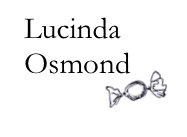Advice for writers from authors Gill Hornby, Liz Fenwick, Adele Parks, Guy Saville, Saira Shah and Kate Williams at Guildford Book Festival 2015.
How do you become a writer?
I was reassured by Adele Parks’ response that, “there is no set path.” Some of the authors had always wanted to be a writer, had known from a very young age that it was what they wanted to do. Others, who perhaps hadn’t dared to dream that big, knew they loved to write. All loved books and stories.
Some like Gill Hornby and Guy Saville had started out as journalists, but even that has its downside. Gill joked.
There’s nothing worse than twenty years of journalism to make you do everything in the last half hour.
Procrastination can be a killer, but each had found their cure.
Writing brings down writing.
Gill said, quoting John Mortimer. It’s the act of writing that makes it happen. And sometimes fate just gives you that extra push to get on and do the thing you long to do. Gill lost her job at the Daily Telegraph and turned feeling cross to creative.
“If I hadn’t got the boot I wouldn’t have written it,” she says. She had been set on a new path, but she was the one who had taken the steps. I liked her dry sense of humour and her fascination for Jane Austen, who is the theme of her next novel.
How do you decide what to write about?
Write about what you know, what moves you, was the unified advice. Liz Fenwick has based her first four novels in Cornwall where she has a home, and where she feels a special affinity for the moors.
Write about what you know, even if it is painful. Saira Shah has written of her severely brain damaged daughter Ailsa in her novel The Mouse-Proof Kitchen. People are interested in human beings finding themselves in challenging situations. I liked that advice. Challenges can be dis-empowering. Channelling the challenge into a story can help reclaim that power.
Kate Williams, historian and life-long learner is known for historical non-fiction. “In non-fiction facts are you friends, you can’t write about what you don’t have evidence for,” Kate says. Yet the creative process is an evolving one, and no writer likes to be pigeonholed. She sounded thrilled at making the switch to fiction, if only a temporary one, and to be free to follow the scent of the story wherever it may lead.
So, change is inevitable where there is creativity. Adele Parks has added two historical novels to her previous contemporary thirteen, Guy Saville is adopting a different writing style in his second book, and Kate Fenwick’s next novel, unlike her previous four, won’t have Cornwall in its title.
The writer’s day
Adele Parks likes structure, adopting the discipline of marathon training. She writes three hours per day and five on Saturdays. Some authors write on a computer, others, where there is a tricky scene to tease out, resort to paper and pen to explore the options more creatively.
Dealing with setbacks
How do you maintain the self-belief when rejection is in the air? Guy Saville said,
Nothing is ever wasted as a writer.
The previous five drafts of his books that have never seen the light of day have helped him hone his craft. The only difference between published and unpublished authors is perseverance. For him, the benefits of getting published were worth striving for, even if it took him twelve years.
What does the future look like for books?
Guy Saville recalled Douglas Adams, who said that books are like sharks.
… the reason there are still sharks around is that sharks are better at being sharks than anything else is. Physical books are tough, hard to destroy, bath-resistant, solar-operated, feel good in your hand: they are good at being books, and there will always be a place for them.
Interestingly amongst the authors interviewed and the audience of readers, most people preferred reading physical books, the tactile experience of holding a book in their hand. If they did have a Kindle they didn’t necessarily know where it was.
Sales of physical books are on the up. Perhaps this is a sign that we are getting bored of the electronic reading experiment and choosing to return to physical books. Or, perhaps there is a place for both.
What I learned
Writing is individual; trust and find your own style and write about what you know. As with reading, it’s important to set aside time to do it. And when things get tough, remember that perseverance is power.
See you at Guildford Book Festival next year!


